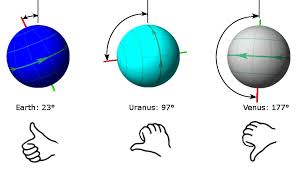The Importance of Earth’s Rotation: Effects on Our Planet

Introduction to Earth’s Rotation
Earth’s rotation is a fundamental aspect of our planet that impacts life in several ways. As it spins on its axis, Earth creates the day-night cycle, influences weather patterns, and affects the environment. Understanding how Earth’s rotation works and its significance can help us comprehend not only the passage of time but also broader environmental patterns.
The Mechanism of Rotation
Earth rotates on its axis, an imaginary line that runs from the North Pole to the South Pole. This rotation takes approximately 24 hours to complete a full turn, which equals one day. The tilt of Earth’s axis at about 23.5 degrees also plays a crucial role in the changing seasons. As the planet rotates, different parts face the sun, resulting in varying temperatures and daylight hours throughout the year.
Effects of Earth’s Rotation
Day and Night Cycle
The most immediate effect of Earth’s rotation is the alternation between day and night. As the planet turns, different regions receive sunlight while others are in darkness, creating a continuous cycle that affects sleep patterns, human behavior, and ecological processes.
Impact on Weather and Climate
Earth’s rotation influences wind patterns and ocean currents. The Coriolis effect, a result of the rotation, affects movement in the atmosphere and oceans, contributing to the formation of weather systems like hurricanes. These patterns have critical implications for climate, agriculture, and ecosystems globally.
Unforeseen Changes
Recent studies have shown that Earth’s rotation is slightly increasing in speed due to melting glaciers and changes in the distribution of mass from the movement of tectonic plates. This phenomenon has significant implications, including the possibility of having shorter days in the future, which could alter the natural balance of ecosystems.
Conclusion
The ongoing understanding of Earth’s rotation enhances our knowledge of natural cycles and their consequences. As we advance in technology and deepen our scientific understanding, it is essential to consider how such fundamental processes might evolve and impact our world. Staying informed helps us appreciate and adapt to the intricate systems of life on Earth influenced by its rotation.









